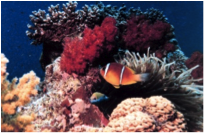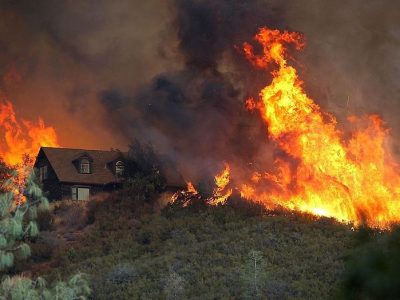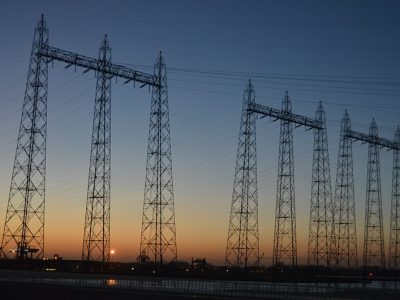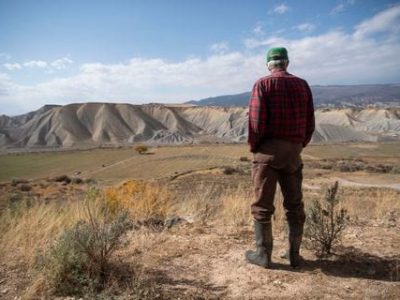Climate Adaptation
Addressing Extreme Heat Risk with Insurance
New report assesses potential for innovative insurance solutions to support response and mitigation
This past summer, California suffered through a record heat wave with triple-digit temperatures throughout the state that helped spark the record-setting wildfires that left millions of acres burned, thousands of people displaced, dozens dead or missing, and millions breathing toxic air. But extreme heat is a climate killer in its own right, responsible for thousands …
Continue reading “Addressing Extreme Heat Risk with Insurance”
CONTINUE READINGEngineering Biological Diversity
In a new paper, I introduce the international governance of synthetic biology, gene drives, and de-extinction for conservation.
In addition to climate change — the primary topic of my academic writing — biodiversity loss is the other major global environmental challenge. Like climate change, efforts over the last three decades keep failing to meet agreed-upon objectives. And like climate change, scientists and others are considering novel technologies that would intervene in natural systems …
Continue reading “Engineering Biological Diversity”
CONTINUE READINGGuest Contributor Samantha Zurcher: The Current State of Wildfire Liability in California
Wildfires Are Ravaging California. Can Electric Utilities Take the Heat?
In recent years, California has experienced its largest and deadliest wildfires in history, resulting in hundreds of fatalities and more than $50 billion in damage. The confluence of rising temperatures, less rainfall, and strong winds signal that the annual “wildfire season” is here to stay, and will continue to proliferate. Every year, thousands of Californians …
CONTINUE READINGHow Climate Disruption May Undermine Climate Policy
The long-term harms from climate change over the next decades may undermine support for efforts to reduce emissions
Almost two straight months of wildfires and smoke in California are a tangible sign of the impacts of climate change on our lives and our world. This article from the New York Times a couple of weeks ago does a good job of laying out why the wildfires in California are only one example of …
Continue reading “How Climate Disruption May Undermine Climate Policy”
CONTINUE READINGGuest Contributor Naomi Wheeler: States and Cities Should Prioritize Equity While Building Grid Resilience
Learning from Grid Resilience Threats and Opportunities in California and New York
Electrical grids across the country face a complex series of overlapping threats to grid resilience in 2020. Wildfires and hurricanes have become the new normal as climate change intensifies the magnitude of extreme weather events. These destructive events create widespread systemic shocks for electrical grids already facing several underlying vulnerabilities. In a recent research report, …
CONTINUE READINGWe’re Going to Need a Much Bigger FEMA
FEMA is built to handle one disaster at a time. That’s not going to work in the future.
“When troubles come, they comes not as single spies but as battalions.” That wisdom goes back to Shakespeare. Yet our disaster response system is keyed to handling single disasters, not clusters of major disasters. That needs to change. This week is a good illustration. We have fires in California that may set records. We have …
Continue reading “We’re Going to Need a Much Bigger FEMA”
CONTINUE READINGBeat the Heat
As Angelenos swelter in historic heatwave, city and county governments seek to cool vulnerable residents
Wildfires sparked by dry lightning storms across California this week are an ominous cap to the state’s historic heat emergency, adding hazardous air quality and evacuation orders to the burdens of the COVID-19 pandemic and economic crisis. Fire risk aside, the heat wave is now entering its most deadly phase. Nationwide, heat kills more Americans …
Continue reading “Beat the Heat”
CONTINUE READINGHot Spots
Climate change isn’t uniform. Some parts of the U.S. are seeing conditions that won’t hit elsewhere for decades.
Friday’s Washington Post had a fascinating article about climate change hotspots within the United States. The largest one was on the Western Slope of the Rockies, which has already seen 2 °C of warming. The story is a reminder that the impacts of climate change will be global and yet also very much local. Before …
CONTINUE READINGThe Whipsaw Effect
Get ready for a rough ride, with sudden weather reversals and climate shifts.
Steady predictable changes in climate and weather would be easier to adapt to. Instead, we may well see some very sudden shifts, both in terms of short-term weather and longer-term climate regimes.
CONTINUE READINGElection 2020: State Legislatures
The Outlook for State Climate Policy Might Improve
The key political races aren’t just about the White House or Congress. Control of state legislatures will also be important in shaping climate and energy policy — not to mention their ultimate effect on the composition of the U.S. House due to redistricting. One of my themes is the importance of state government to climate …
Continue reading “Election 2020: State Legislatures”
CONTINUE READING










